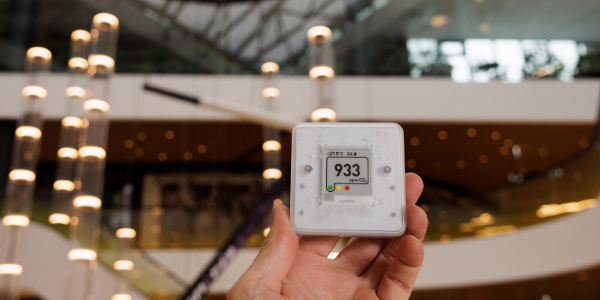There are many reasons why you may want, or indeed, need to upgrade your building management system (BMS). Old and outdated systems often use more energy, cost more to run, have inefficient security systems and do little to enhance the comfort of the building occupants. Chances are you haven’t got any 15 year old IT equipment in use within your building, so, in the same way, why would you expect efficiency and reliability from 15 year old BMS equipment?
Whether you are actively considering upgrading your BMS or it is something that you may do in the future, you may find it useful to know that just by making a few changes here and there, you could achieve significant energy and cost savings, not to mention improved security.
Among the many reasons to upgrade your building management system are:
- Improved security
- Reduced risk of failure
- Lower energy usage
- Lower energy costs
- Extended building lifespan
- Improved occupant comfort and productivity
- Easier environmental monitoring
- Less maintenance
What To Consider When Upgrading Your BMS
- Needs and capabilities
Carry out an assessment of what you need from your BMS. Different buildings are used for different purposes and this will affect the type of upgrade you require. An experienced BMS specialist should be able to talk you through the capabilities of your building, what the possibilities are and then plan and install a building management solution tailored to your needs.
- Choose the right BMS service provider
It’s important to find a BMS provider who will work hard to understand what’s really needed from your BMS upgrade, incorporating elements from various equipment ranges and manufacturers to provide a bespoke design.
There is rarely an off-the-shelf solution when you’re looking for a BMS which will completely meet your needs. And there are often several alternatives to changing the whole system. On their own, these changes can make the system much more efficient over all.
The right building management system should not only be able to meet your needs today, but long into the future, possessing the ability to monitor its own effectiveness and adapt to change, both technologically and environmentally without compromising on speed, performance and functionality.
- Budget constraints
When upgrading your building management system, it’s important to be aware of the costs involved and whether you have the required budget. Before work starts on upgrading your BMS, your service provider should be able to give you a breakdown of the costs and talk you through what will happen at every step.
- Implementing the BMS upgrade
By planning a phased upgrade of your building management system in advance, you can help to ensure it goes as smoothly as possible. The upgrade of a building management system can take place in stages. Not only will this allow you to spread the cost, but it will also help to minimise disruption and downtime for any businesses within the premises.
Cube Controls is an established and experienced supplier of Building Management Systems, specialising in the design and set up of bespoke environmental and energy control programmes for commercial buildings and property.
To find out how Cube Controls can support you at all stages of design and consultancy, installation and modification and maintenance of your building management systems contact our expert and friendly team on 01903 694279 or sales@cubecontrols.co.uk.




